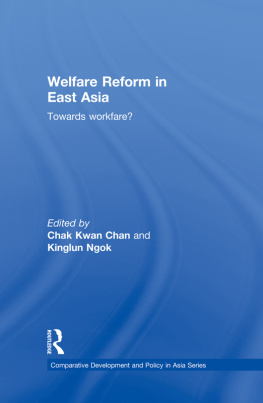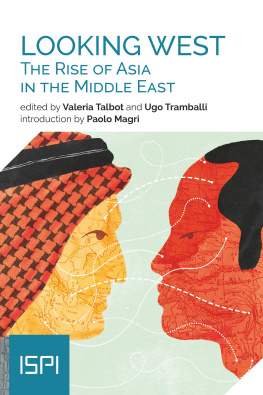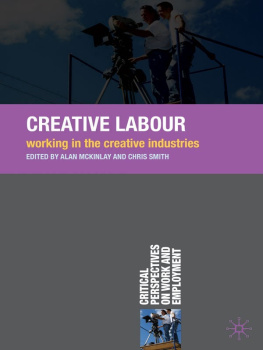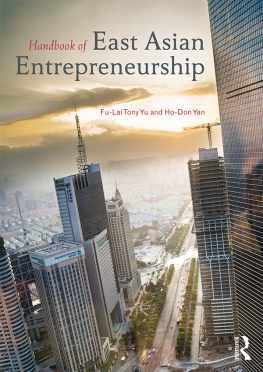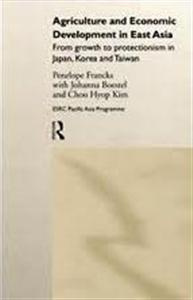
Labour, Policy, and Ideology in East Asian Creative Industries
This book addresses some of the questions that have been brought to light by the varied experiences of culture industry workers and consumer publics across East Asia over the past decade.
For over twenty years, the creative industries have been seen as the engine driving global economic transformation, as a way out of the dilemmas of de-industrialization, and as key to the projection of national soft power. The chapters in this book cover the former Tiger Economies of South Korea, Taiwan, and Singapore, as well as Japan and China, and focus on a number of different industries cinema, television, graphic design, fashion, and literature. The authors include sociologists, anthropologists, and cultural studies scholars who approach the topics of creative work, government policy, and entrepreneurial strategy from a variety of perspectives. The chapters examine the varied political, economic, and social structures that influence the development of creative industries within the region and reveal how the careers of creative industry workers in different cities and different industries can vary. They also show how the development of the creative industries can affect many aspects of society, including city planning, policing, democratic politics, and ethnic and national identities.
This book was originally published as a special issue of Culture, Theory and Critique.
Teri Silvio is an Associate Research Fellow at the Institute of Ethnology at Academia Sinica, Taiwan. She is the author of Puppets, Gods, and Brands: Theorizing the Age of Animation from Taiwan (2019).
Lily H. Chumley is Associate Professor of Media, Culture and Communication at New York University, USA. She is the author of Creativity Class: Art School and Culture Work in Postsocialist China (2016).
Labour, Policy, and Ideology in East Asian Creative Industries
Edited by
Teri Silvio and Lily H. Chumley
First published 2020
by Routledge
2 Park Square, Milton Park, Abingdon, Oxon, OX14 4RN
and by Routledge
52 Vanderbilt Avenue, New York, NY 10017
Routledge is an imprint of the Taylor & Francis Group, an informa business
2020 Taylor & Francis
All rights reserved. No part of this book may be reprinted or reproduced or utilised in any form or by any electronic, mechanical, or other means, now known or hereafter invented, including photocopying and recording, or in any information storage or retrieval system, without permission in writing from the publishers.
Trademark notice: Product or corporate names may be trademarks or registered trademarks, and are used only for identification and explanation without intent to infringe.
British Library Cataloguing in Publication Data
A catalogue record for this book is available from the British Library
ISBN13: 978-0-367-33302-7
Typeset in Minion Pro
by Newgen Publishing UK
Publishers Note
The publisher accepts responsibility for any inconsistencies that may have arisen during the conversion of this book from journal articles to book chapters, namely the inclusion of journal terminology.
Disclaimer
Every effort has been made to contact copyright holders for their permission to reprint material in this book. The publishers would be grateful to hear from any copyright holder who is not here acknowledged and will undertake to rectify any errors or omissions in future editions of this book.
Contents
Teri Silvio
Ju Oak Kim
Kukhee Choo
Adina Simona Zemanek
Teri Silvio
Audrey Yue
Nellie Chu
The chapters in this book were originally published in Culture, Theory and Critique, volume 59, issue 2 (May 2018). When citing this material, please use the original page numbering for each article, as follows:
Chapter 1
After creativity: labour, policy, and ideology in East Asian creative industries
Teri Silvio
Culture, Theory and Critique, volume 59, issue 2 (May 2018) pp. 7580
Chapter 2
Koreas blacklist scandal: governmentality, culture, and creativity
Ju Oak Kim
Culture, Theory and Critique, volume 59, issue 2 (May 2018) pp. 8193
Chapter 3
Cool governance: Japans ubiquitous society, surveillance, and creative industries
Kukhee Choo
Culture, Theory and Critique, volume 59, issue 2 (May 2018) pp. 94118
Chapter 4
Nation branding in contemporary Taiwan: a grassroots perspective
Adina Simona Zemanek
Culture, Theory and Critique, volume 59, issue 2 (May 2018) pp. 119138
Chapter 5
Representing creative labour and identity in Singaporean graphic novels: Sonny Liew and Troy Chin
Teri Silvio
Culture, Theory and Critique, volume 59, issue 2 (May 2018) pp. 139157
Chapter 6
The diaspora advantage of Pauline Chan (1956): from multicultural filmmaker to cultural broker
Audrey Yue
Culture, Theory and Critique, volume 59, issue 2 (May 2018) pp. 158177
Chapter 7
The paradoxes of creativity in Guangzhou, Chinas wholesale market for fast fashion
Nellie Chu
Culture, Theory and Critique, volume 59, issue 2 (May 2018) pp. 178192
For any permission-related enquiries please visit:
www.tandfonline.com/page/help/permissions
Kukhee Choo is Assistant Professor of Comparative Culture in the Faculty of Liberal Arts at Sophia University, Japan. Her research interests are in film and media studies, cultural studies, body and surveillance, postcolonialism, and nationalism.
Nellie Chu is Assistant Professor of Anthropology at Duke Kunshan University, China. Her current research focuses on global supply chains in fashion and the transnational role of migrant entrepreneurs.
Ju Oak Kim is Assistant Professor in the Department of Psychology and Communication at Texas A&M International University, USA. She studies globalization, culture industries, and production culture with a particular focus on East Asia.
Teri Silvio is an Associate Research Fellow at the Institute of Ethnology at Academia Sinica, Taiwan. She has conducted ethnographic research and published on gender and sexuality, fandoms, theatre, puppetry, animation, and design in Taiwan, Hong Kong, China, and Southeast Asia.
Audrey Yue is Professor in Media, Culture, and Critical Theory in the Department of Communications and New Media at the National University of Singapore. Her research covers the fields of Sinophone media cultures, cultural policy and development, and queer Asian studies.
Adina Simona Zemanek is Lecturer in Asia Pacific Studies at the University of Central Lancashire, UK. She currently teaches modules in East Asian philosophy, political changes and social movements in the Asia Pacific, and research methods.
Teri Silvio
For over 20 years, the creative industries have been seen as the engine driving global economic transformation, a way out of the dilemmas of de-industrialization, and as key to the projection of national soft power (Nye 1990), that is, non-military geopolitical influence. Some of the industries often placed in this category have histories of a century or more (e.g., cinema, advertising), while some are much newer (e.g., software programming), but the category itself, and the policies around it, are transforming them all.


